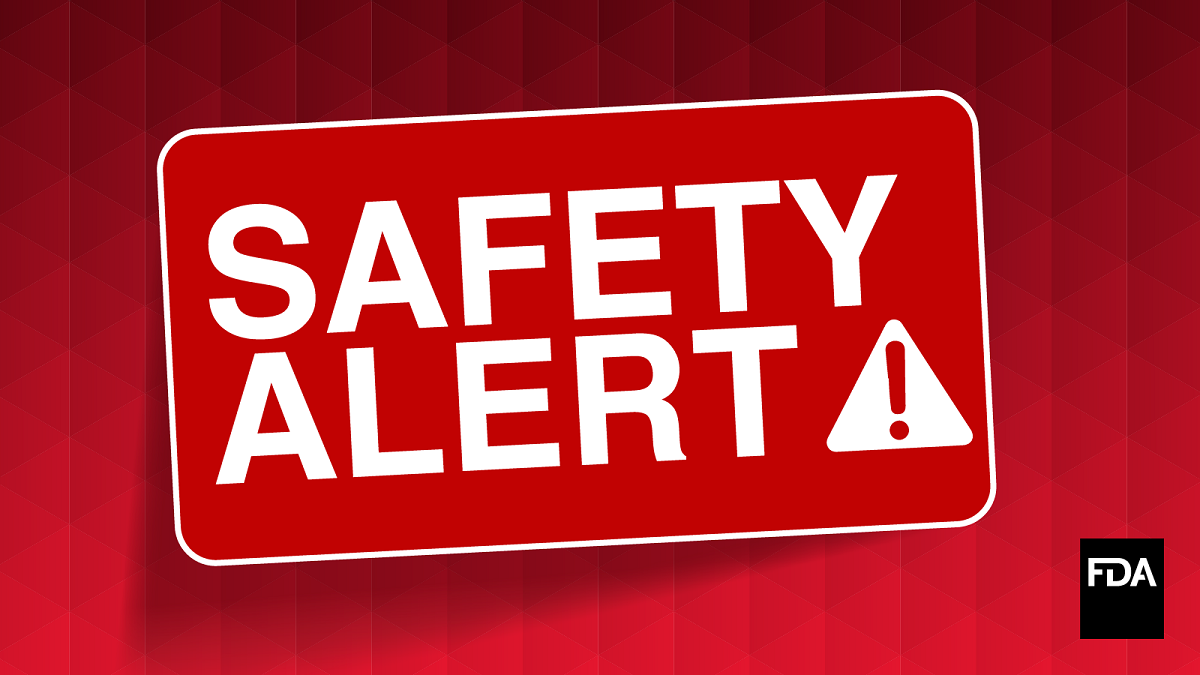The FDA advises consumers not to eat, restaurants and food retailers not to sell, and to dispose of recalled wild harvest oysters from FL-3012, Cedar Key, Florida, harvested between December 16, 2022, and February 24, 2023, due to possible Salmonella contamination. These oysters were sold in Alabama, Florida, and Georgia. The Florida Department of Health and the state health departments of Georgia and Alabama have detected a Salmonella outbreak associated with consuming raw oysters harvested from shellfish harvesting area FL-3012 in Cedar Key, Florida. To date, there have been 8 cases linked to this outbreak within Florida, Georgia, and Alabama. On February 24, 2023, the Florida Department of Agriculture and Consumer Services issued an emergency closure order for wild harvest oysters from harvest area FL-3012 and initiated a recall of wild harvest oysters from harvest area FL-3012 in Cedar Key that were harvested from December 16, 2022, to February 24, 2023. On February 24, the State of Florida notified the Interstate Shellfish Sanitation Conference of the closure and recall. Florida Department of Health posted an advisory bulletin on February 28. 2023. @ https://www.fda.gov/food/alerts-advisories-safety-information/fda-advises-restaurants-retailers-and-consumers-avoid-recalled-wild-harvest-oysters-harvest-area-fl?utm_medium=email&utm_source=govdelivery
ruth
The FDA is advising consumers not to eat, and restaurants and food retailers not to sell, and to dispose of recalled wild harvest oysters from FL-3012, Cedar Key, Florida, harvested between December 16, 2022, and February 24, 2023, due to possible Salmonella contamination.
ruth
The CORE list of outbreaks and adverse events includes 3 entrees. A new outbreak of hepatitis A virus infections (ref # 1143) linked to a not yet identified product has been added to the table. FDA has initiated traceback. The FDA initiated an onsite inspection, sample collection, and analysis for the outbreak of Listeria monocytogenes (ref # 1123). This investigation is ongoing. The outbreak of Salmonella Typhimurium (ref # 1137) linked to alfalfa sprouts has ended, and the FDA investigation is closed. @ https://www.fda.gov/food/outbreaks-foodborne-illness/investigations-foodborne-illness-outbreaks?utm_medium=email&utm_source=govdelivery
The following is a list of outbreak and adverse event investigations primarily being managed by FDA’s CORE Response Teams.
ruth
Food Safety News published a piece with condemnation by leaders from a group of consumer and industry organizations that unanimously rejected FDA Commissioner Robert Califf’s plan of restructuring of FDA. While Califf’s plan includes creating that post, it continues to have three separate divisions reporting directly to the FDA commissioner, continuing the silo and matrix situation that the industry and consumer groups say endangers the public in terms of food safety. Some feel that Califf is choosing to go with the status quo. The plan does not create an empowered deputy commissioner of foods and fails to give that post the ability to take control of and responsibility for the food side of the agency. The job description for the deputy commissioner post will make it impossible to recruit anyone qualified for the job because it is an impotent job. The plan proposed lacks any urgency.
Neither consumer groups nor industry representatives believe FDA plan will work
Leaders from a group of consumer and industry organizations were unanimous yesterday in condemning FDA Commissioner Robert Califf for his plan to
ruth
The FDA had announced that it had begun the national search for the Deputy Commissioner for Human Foods, reporting directly to the commissioner. The ideal candidate will have executive-level and real-world experience sufficient to lead the newly envisioned Human Foods Program. This individual will also have a clear line of authority over the proposed Human Foods Program, including the existing components of the Center for Food Safety and Applied Nutrition (CFSAN), the Office of Food Policy and Response (OFPR), and certain human foods-related components of ORA. The Deputy Commissioner for Human Foods and other program leads will be charged with setting strategic direction for food inspections and have authority over program resource allocation. The FDA is currently assessing specific functions of ORA, CFSAN, and OFPR; analyzing inspection and compliance functions; evaluating how to empower the Deputy Commissioner; how to coordinate the FDA and state-operated food laboratory operations; How to improve the FDA’s ability to conduct risk prioritization to deliver the highest public health benefit. Part of the plan is to move cosmetics out of CFSAN. The FDA is seeking to finalize its proposal this fall. Once the plan is finalized, the plan undergoes a thorough review before advancing to Congress for a 30-day notification period which members may raise any concerns that the FDA may need to address. @ https://www.fda.gov/news-events/press-announcements/fda-provides-update-proposed-human-foods-program-and-office-regulatory-affairs-restructuring?utm_medium=email&utm_source=govdelivery
FDA Provides Update on Proposed Human Foods Program and Office of Regulatory Affairs Restructuring




